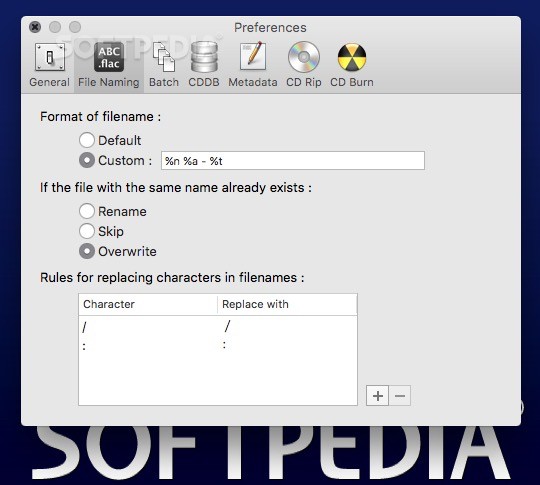

This works, but it is less efficient, so you could make some improvements. So if, for example, an image file is sent, it will fail and simply be copied. If it fails, it simply copies it to the destination folder. So that's a decent number of different output options. You can get the latest list for your version if you use the CLI version without any arguments: -f: Specify format of decoded file The output formats for XLD are, strangely, not listed on its website. ~/Music/mp3-mirror The destination of the new music library. ~/Music/iTunes/iTunes Media The source music library (here the user's iTunes library). That's: ~/Desktop/converter.sh The path to the script (in this case inside the user's Desktop folder). You could save the script to your Desktop, then open Terminal and execute like so: ~/Desktop/converter.sh "~/Music/iTunes/iTunes Media" "~/Music/mp3-mirror" mp3 The CLI version is included in the XLD download, but separate to the XLD GUI app, so you might need to go back to the DMG to extract the CLI version. XLD here is the command line (CLI) version. (I called out XLD as the no-nonsense choice for audio file converting before). The script scans through every file in a designated root folder and uses XLD to convert it. This works by creating a copy of the library, not an 'impersonation' (as I call it). In a recent thread on Computer Audiophile, glider contributed their script for getting this done. Sometimes though we can't have perfect solutions, and this only works on Linux, so what's a way of getting this to work for MacOS, say? Mp3fs creates an "impersonation" of a lossy library by using a lossless one as its source. Instead it's an expression of my usual solution: mp3fs. That's not a glib, snobbish comment on lossy libraries. My favoured way of maintaining a lossy library alongside a lossless one is to not have a lossy library.


 0 kommentar(er)
0 kommentar(er)
